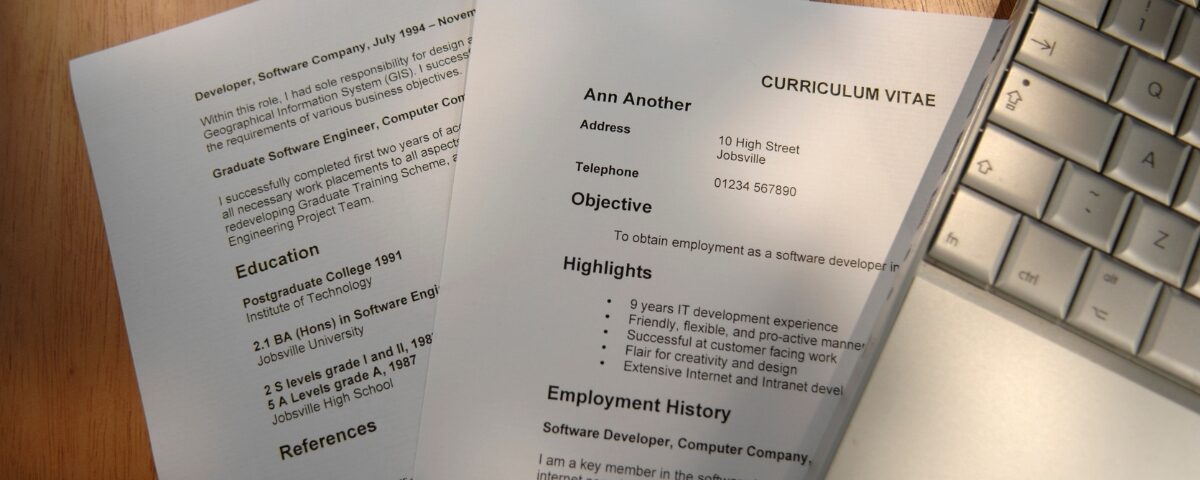
Essential Guide to Crafting a Resume for Freshers Without Experience
May 31, 2025
Resume Objective for Freshers: Crafting Your Career Objective
June 14, 2025CV vs Resume in India: Understanding the Difference
You’re standing at the starting line of your career journey, and the first tool in your kit is understanding the difference between a CV vs resume in India. A CV (Curriculum Vitae) paints a full portrait of your academic life. It maps out every milestone, your degrees, research projects, publications, and even the awards you’ve collected along the way. For freshers, this might feel like a blank page, but remember: every college project, volunteer stint, or workshop you’ve attended adds a brushstroke to this canvas.
In contrast, a resume is a concise snapshot. It highlights only the most relevant experiences and skills tailored for the specific job you’re applying to. While a CV in India can stretch over multiple pages for academic or research roles, your resume should rarely exceed two pages. This clear focus helps recruiters quickly spot your fit.
As a fresher, you might wonder, “Which one should I choose?” It’s important to select the appropriate document, CV or resume based on the context of your application to best showcase your qualifications. Think about your goal. If you’re aiming for an internship at a research lab or applying to postgraduate studies, your detailed CV will shine. However, when you’re vying for corporate positions or industry roles, a crisp resume showcasing your top achievements can give you an edge.
Moreover, understanding the difference between a resume and a CV for freshers empowers you to create documents that speak directly to hiring managers. For instance, if you’re applying to a data analytics role, highlight your project on statistical modelling in your resume. Yet, for a university teaching assistantship, a detailed CV listing your academic publications will work wonders.
Finally, don’t let the jargon confuse you. Start by listing everything you’ve done, then trim and tailor. Transition seamlessly between the two formats as needed. In the end, whether you choose a CV or resume, confidence and clarity will set you apart. Embrace the process, and soon you’ll be confidently navigating the competitive Indian job market.
Definition and Purpose of Resume

A resume is your career snapshot, designed to grab attention fast. Think of it as a highlight reel of your most relevant qualifications, skills, and experiences, all wrapped into one concise document. A resume is a brief document designed to quickly showcase your qualifications to potential employers. When you’re hunting for that first job or internship, knowing the difference between a resume and a CV for freshers can help a lot. Yet, once you grasp its purpose, crafting a resume becomes empowering.
First, you focus only on what matters for the role. If you’re applying for a software developer position, you’ll list coding languages, projects, and any hackathons you’ve aced. You won’t mention that you love painting landscapes unless, of course, the company values artistic flair. This clarity helps busy hiring managers zero in on your fit, saving both of you time.
Next, remember that in India, resumes dominate the corporate, IT, and finance sectors. Unlike a CV, which can stretch across pages with every academic detail, a resume keeps it tight. Ideally, it stays within one to two pages. So, you’ll tailor each version to the job description, matching keywords and showcasing achievements that align with the company’s needs. This strategy not only boosts readability but also improves your visibility in applicant tracking systems another plus when comparing cv vs resume in India.
Moreover, writing a resume teaches you to speak your own professional language confidently. As you choose action verbs like “managed,” “developed,” “achieved”, you see how your experiences translate into value for a potential employer. That realisation can spark real motivation, turning a chore into a creative exercise.
Finally, keep updating your resume. Every workshop you attend, every certificate you earn, adds fresh fuel to your journey. By understanding the definition and purpose of a resume, you’re not just filling a template; you’re crafting your first impression in the job market. And that, in itself, can set you apart as a proactive, confident candidate ready to make your mark.
Key Differences between CV and Resume

You’ve probably wondered why people keep talking about cv vs resume in India. Well, let’s break it down together and make it simple. There are several key differences between a CV and a resume that you should know to make the right choice.
First off, length matters. A CV can stretch out over several pages. It dives deep into your academic journey, every paper you’ve written, every seminar you’ve led, every award you’ve picked up. On the other hand, a resume is like a spotlight on your top moments. One page is ideal. Two at most. This concise approach lets recruiters see your strengths right away. These resume differences highlight how resumes and CVs vary in format and content, helping you decide which is best for your application.
Moreover, detail is another major difference between resume and CV for freshers. In a CV, you’ll list coursework, research projects, and even conference presentations. You could go on for pages without worrying about space. But with a resume, you choose only the most relevant bullet points. You want to showcase what fits the job description, nothing more, nothing less.
Purpose also sets them apart. When you apply for a PhD or a teaching assistantship, you’ll craft a CV. Academic and research roles demand a full history. However, if you’re aiming for a marketing internship, a finance role, or any industry position, a resume is your best friend. It screams, “Here’s why I’m a perfect fit!” Understanding the resume difference is crucial for tailoring your application to the specific role and requirements. This clear focus makes all the difference in a competitive job market.
CV Format and Structure

A well-structured curriculum vitae (CV) is your ticket to making a strong impression, especially when applying for academic positions or research roles. The format of a CV is designed to provide a comprehensive overview of your educational background, professional achievements, and relevant skills in a clear, organised manner.
Start with your Contact Information at the top—include your name, address, phone number, and email address so potential employers can easily reach you. Next, add a Professional Summary: this brief section should highlight your key academic and professional accomplishments, setting the tone for the rest of your CV.
The Education section is crucial. List your degrees, institutions, and any relevant courses in reverse chronological order, ensuring your most recent qualifications stand out. If you have participated in significant Research Projects or have notable Research Experience, dedicate a section to describe your methodologies, findings, and contributions.
Don’t forget to include a Publications section if you’ve authored articles, books, or conference papers, and a Presentations section for any talks or workshops you’ve delivered. Awards and Honors should be listed to showcase your academic achievements and recognitions.
Membership in professional organizations can be highlighted under Professional Memberships or Professional Affiliations. A dedicated Skills section allows you to list relevant skills—such as technical abilities, languages, or software proficiency—that align with the job requirements.
Finally, round out your CV with Professional References. Include names, titles, and contact information for individuals who can vouch for your qualifications and character.
To make your curriculum vitae easy to navigate, use clear headings and bullet points. Always list experiences in reverse chronological order, ensuring your most recent and relevant information appears first. This structured approach helps hiring managers quickly identify your strengths and suitability for academic or research positions.
Objective Statement in Resumes

Traditionally, resumes began with an objective statement, a brief line outlining a job seeker’s career goals and aspirations. However, in today’s competitive job market, objective statements are often seen as outdated and too generic to capture a hiring manager’s attention.
Instead, job seekers are encouraged to use a professional summary at the top of their resume. This section provides a concise overview of your most relevant skills and experiences, directly aligned with the requirements of the specific job you’re targeting. A well-crafted professional summary quickly communicates your value to potential employers and sets the stage for the rest of your resume.
By focusing on your relevant skills and achievements rather than a broad objective statement, you demonstrate a clear understanding of what the employer is looking for. This approach not only makes your resume more compelling but also increases your chances of standing out among other applicants.
CV and Resume Examples

When preparing your job application, it’s helpful to review examples of CVs and resumes tailored to different roles and industries. Choosing the right format and structure for your target job can make a significant difference.
For academic or research positions, an Academic CV is the preferred document. This comprehensive CV includes detailed sections on research experience, academic projects, publications, and presentations, providing a thorough record of your academic accomplishments.
If you’re aiming for a leadership role, an Executive Resume is ideal. This concise document highlights your management experience, leadership skills, and strategic achievements, focusing on results and impact relevant to executive-level positions.
For those just starting out, an Entry-Level Resume is designed to showcase your educational background, key skills, and any relevant internships or volunteer experiences. Even with limited work history, you can emphasise coursework, academic projects, and extracurricular activities that align with the requirements of your target job.
Choosing the Right Document

Selecting between a CV and a resume is a crucial step in your job application process. The right choice depends on the specific job, industry, and even the location of the opportunity. For academic, research, or scientific positions, a curriculum vitae is typically the preferred document, as it provides a comprehensive overview of your educational background, research projects, and professional achievements.
In most other industries, especially in the corporate sector, a resume is the standard. Here, the focus is on presenting your most relevant qualifications and experiences in a concise format tailored to the job requirements. Job seekers should always review the job description carefully and incorporate relevant keywords to ensure their application stands out in applicant tracking systems.
The effectiveness of your application doesn’t just depend on the document you choose, but also on how well you tailor it to the specific job. Highlight your most relevant qualifications, use a clear and organised format, and showcase your professional achievements. By incorporating relevant keywords and aligning your document with the expectations of hiring managers, you’ll boost your chances of success in today’s competitive job market.
CV vs Resume in India

When you’re just starting your career, figuring out the right way to present yourself can feel overwhelming. One common confusion is understanding the difference between a resume and a CV, especially in India. Let’s break it down to help you make the best choice for your job applications.
A Curriculum Vitae (CV) is a detailed document that outlines your entire academic and professional history. A CV provides a detailed overview of your qualifications, covering your educational background, research, publications, and any awards or honours you’ve received. For those with an extensive academic background, especially in academic, research, or medical fields, a CV is essential as it allows you to showcase scholarly achievements, research, and academic honours. CVs are typically used when applying for academic, research, or medical positions, and are also required for graduate school applications. A CV covers your entire professional career, including all relevant achievements. It is important to include your professional experience and professional experiences in a CV, especially for academic or research roles. Including relevant experience demonstrates your suitability for academic or research positions. A CV presents a person’s qualifications in detail, making it a comprehensive document for such applications. They can be several pages long, depending on your experience.
On the other hand, a resume is a concise summary of your skills, experience, and qualifications tailored to a specific job. In some cases, both a CV and a resume may be needed for different applications, depending on the job or academic requirements. Both CV and resume differ from other documents like biodata, as they focus more on qualifications and experience rather than just personal information. Resumes are commonly used in the corporate, IT, and finance sectors in India. They are usually one to two pages long and focus on highlighting your most relevant achievements for the job you’re applying to.
Understanding the cv vs resume in India is crucial for freshers. If you’re applying for a research assistant position at a university, a CV would be appropriate. However, if you’re targeting a role in a tech company, a resume would be more suitable.
For freshers, the difference between resume and cv lies in the level of detail and the purpose of the document. A CV provides a comprehensive overview of your academic achievements, while a resume highlights your skills and experiences relevant to a particular job.
Choosing the right document can make a significant difference in your job search. Tailor your CV or resume to align with the job requirements, and you’ll increase your chances of landing that interview. Stay confident and keep pushing forward!
Difference Between CV and Resume

When you’re just stepping into the professional world, understanding the difference between a CV and a resume can feel overwhelming. In India, these terms are often used interchangeably, but they serve distinct purposes, especially for freshers like you.
A Curriculum Vitae (CV) is a comprehensive document that details your entire academic and professional history. The term CV is commonly used in Europe and the UK to describe a detailed summary of a person’s educational background, work experience, skills, and achievements, and may be used interchangeably with a resume in those regions. It includes information about your education, research, publications, and awards. CVs are commonly used when applying for academic, research, or medical positions. They provide a thorough overview of your qualifications and are typically longer than resumes.
On the other hand, a resume is a concise document that highlights your most relevant qualifications, skills, and experience tailored to a specific job. Resumes are widely used in various industries, including corporate, IT, and finance. It is important to use the correct resume format that aligns with industry standards and the specific job you are targeting. Resumes serve to showcase your most relevant skills and experiences for a particular position, making your application more effective. You can also use a resume stand to organize or present your resumes professionally during job fairs or interviews. They are usually one to two pages long and focus on showcasing your professional background and achievements clearly and concisely. Unlike CVs, resumes generally do not include personal interests or hobbies unless they are directly related to the job. The term resume is used internationally, and in India, it may also be referred to as a biodata or used as a synonym for CV, depending on the context.
For freshers, the difference between resume and CV is crucial. If you’re aiming for a role in academia or research, a detailed CV is appropriate. However, for most entry-level positions in the corporate sector, a well-crafted resume is your best bet. Tailoring your resume to the specific job description and requirements can significantly increase your chances of getting noticed by hiring managers.
Understanding the nuances of CV vs resume in India empowers you to present your qualifications effectively. It is also important to be aware of the terms CV and resume, as their usage and meaning can vary across different regions, and understanding these differences will help you choose the right document for your application. By choosing the right document for your job application, you can stand out in a competitive job market and take a confident step towards your career goals.
Geographic Variations
You might have noticed that different parts of the world favour different application documents. In Europe, Asia, and Africa, a CV often takes centre stage. It’s the go-to choice for academic, research, and even some corporate roles. On the flip side, in the United States and Canada, employers almost always expect a crisp resume. When applying for jobs internationally, it’s important to understand the preferred document, viz. CV, resume, or biodata in each country, as regional preferences can impact how you present your qualifications.
In the UK, you’ll see CVs dominating the scene again. They prefer a detailed account of your education and career milestones. Yet in India, you’re lucky to have options. Both formats appear in job ads, so knowing when to use each can give you a real advantage in the cv vs resume in India debate.
As a fresher, the difference between resume and CV for freshers might seem subtle, but it can make or break your first impression. For academic internships or research assistantships, lean into a CV. Mention your projects, workshops, and any seminars you’ve led. Don’t worry about length, detail is your friend here.
Transitioning between formats is easier than you think. Start by listing everything in a master document. Then, when you need a CV, simply expand each section. If you need a resume, trim it down to the essentials. This way, you maintain consistency across both documents.
Ultimately, understanding geographic variations in document preferences empowers you to tailor your applications. By choosing the right format, CV or resume, you’ll present your strengths clearly. In India and South Asia, biodata documents may also be requested, which often include personal information such as marital status, something less common in Western resumes. And that confidence will shine through, helping you take the first step toward your dream role.




